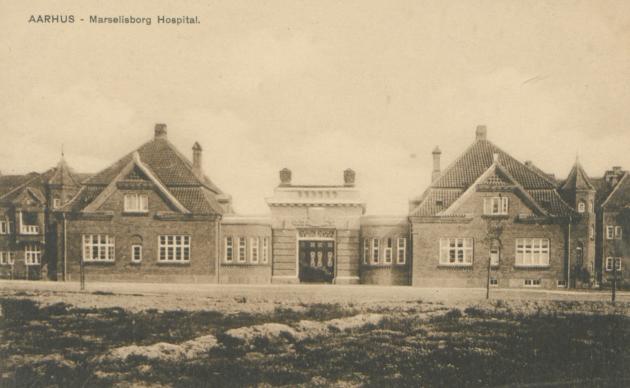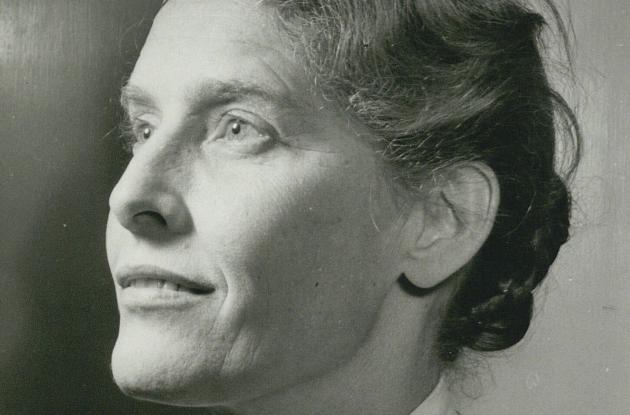Kirsten Auken
Kirsten Auken became Denmark's first sexologist, and her research on women's sexuality was groundbreaking. She also played a major role in introducing mandatory sex education in schools.
In 1953, Kirsten Auken (1913-1968) was to defend her doctoral thesis at Aarhus University. A horde of people, including journalists and other researchers, turned up. And there was great commotion when the 400 insufficient seats in the auditorium had to be filled.
Studies on the sexual behaviour of young women.
That was the title of Auken's thesis. Newspapers from all over the country covered the defence as front page news.
According to Vejle Amts Folkeblad, Kirsten Auken was offered fortunes for the film rights to her thesis. And Horsens Folkeblad described how Aarhus University was stormed yesterday when Doctor Kirsten Auken defended her doctoral thesis.

Photo: Ernst Larsen (1883-1919)
Kirsten Auken had graduated with a master's degree in medicine from the University of Copenhagen in 1941. In 1944, she began a research project at Marselisborg Hospital that focused on young women's sexual knowledge and behaviour.
As part of the project, Kirsten Auken interviewed 300 Danish women aged 20-35 on topics such as menstruation, sexual experience, masturbation, contraception, pregnancy and abortion. Kirsten Auken's research project was groundbreaking. At the time, the sexuality of the population - and especially young women - was a taboo subject that was also underexposed in research.
Kirsten Auken's thesis showed, among other things, that fewer than 2% of the women interviewed were married at the time of their first intercourse. This was both shocking and astonishing to doctors of the time. The research also showed that half of the pregnancies among the women interviewed were unplanned and unwanted – and this was a time when the possibility of obtaining a legal abortion was very limited. At the same time, one-third of the women said that when they first had their period, they had been completely unaware
of what menstruation was.
When Kirsten Auken asked the women where they had gained their knowledge about sexual matters as young people, two-thirds answered that they had received their information from peers, while family and school played a rather insignificant role.
Sex education was neither mandatory nor particularly widespread at that time.
When the government established a sexual education committee in 1961, it was chaired by Kirsten Auken. One of the committee's recommendations was to introduce mandatory sexual education in elementary schools. This became a reality in 1970, two years after Kirsten Auken's death.
